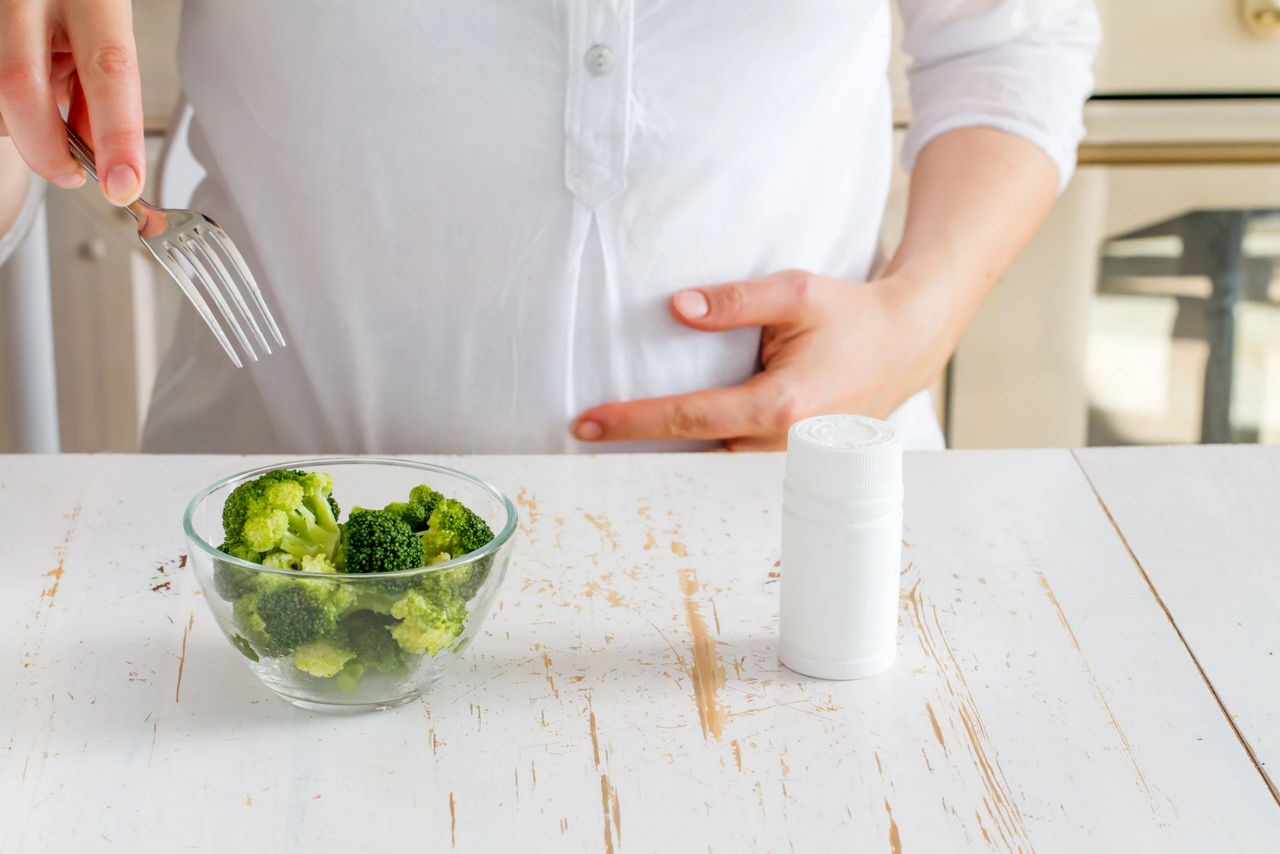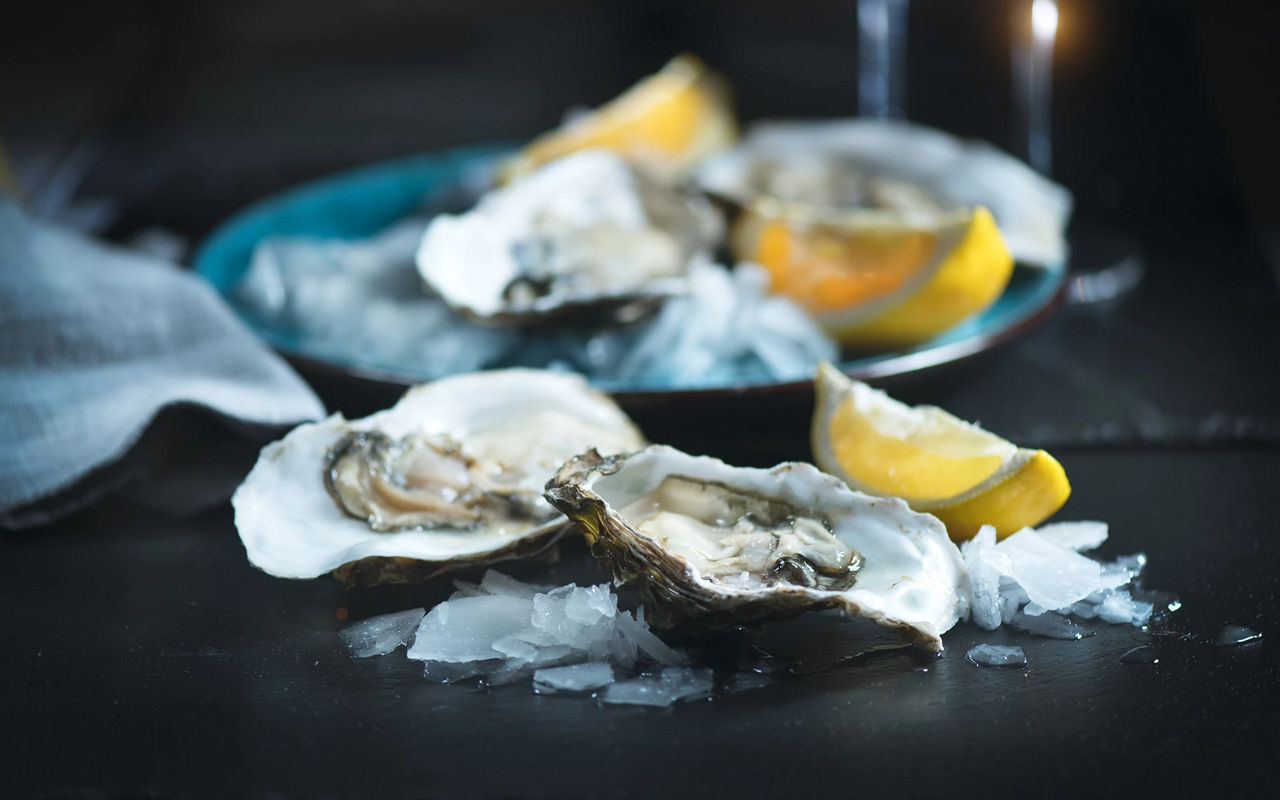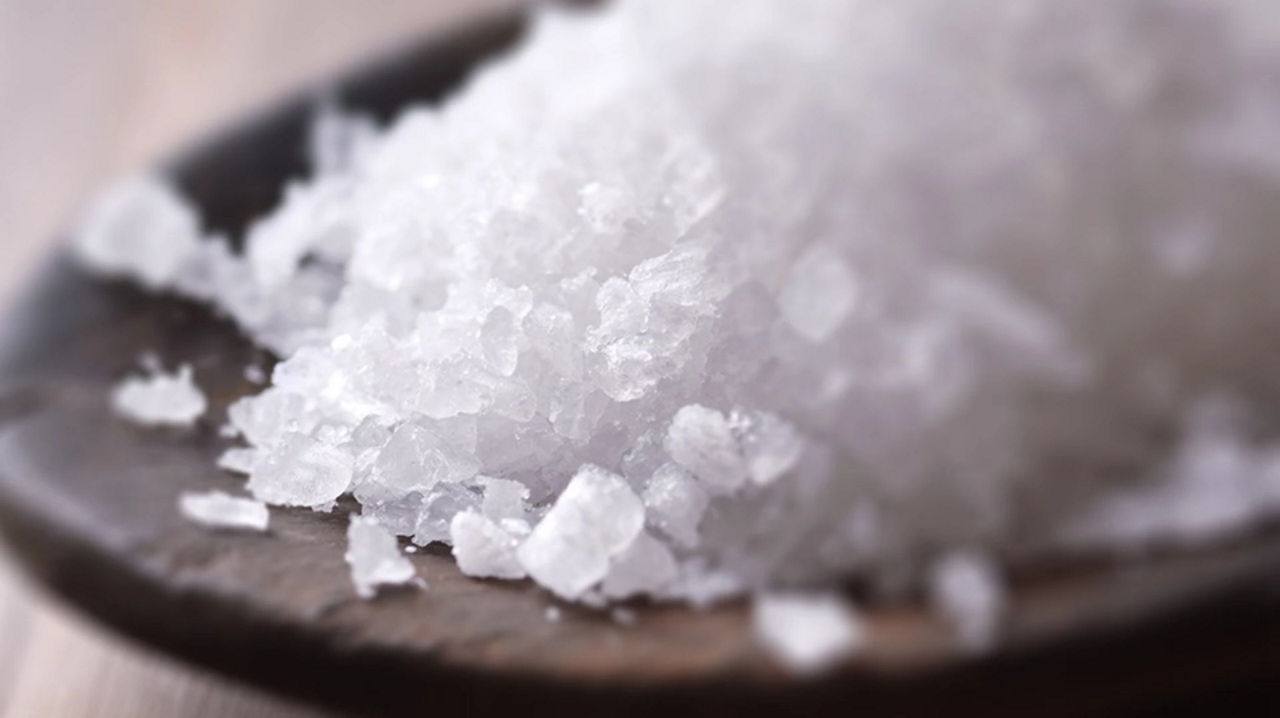Packed with essential vitamins, minerals and fibre, fruit and vegetables are a vital part of a healthy pregnancy diet. Find out how eating your 5-a-day can influence your baby’s future development and learn which fruits and vegetables are more nutrient dense and could be considered ‘superfoods’.
Superfoods for pregnancy
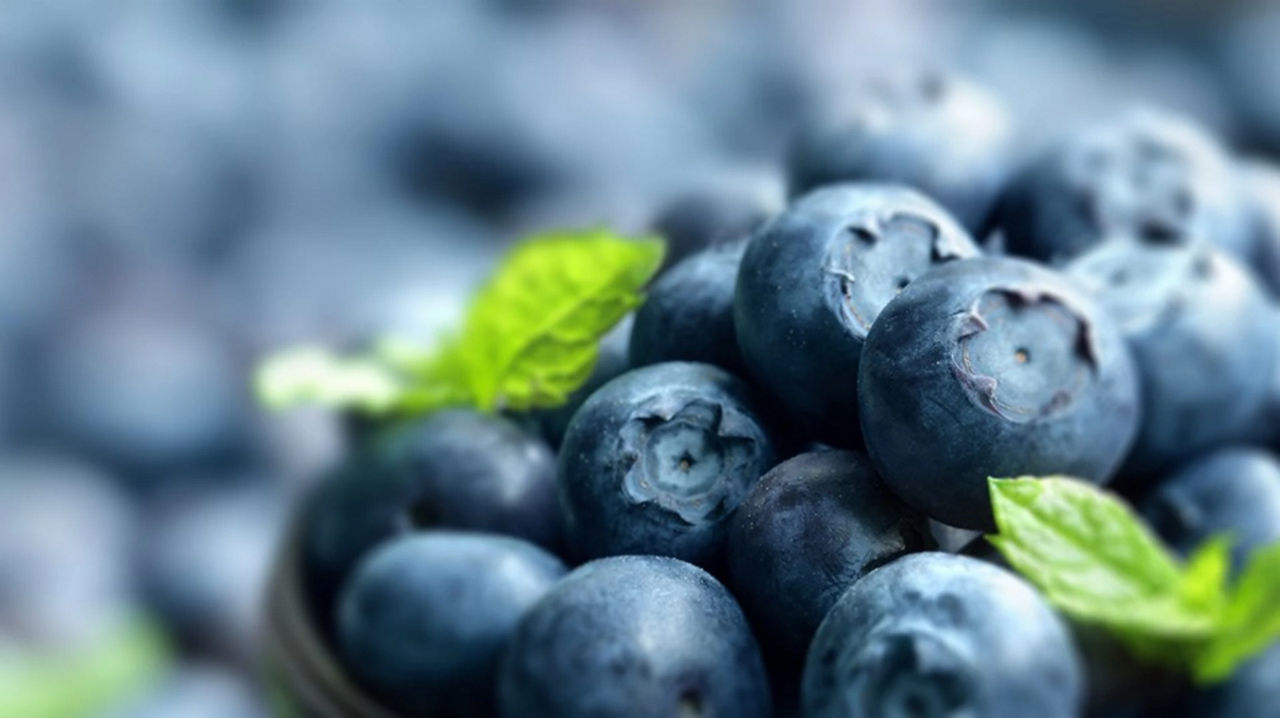
Fruits and vegetables to eat during pregnancy
As the most nutrient-dense of all the food groups, fruit and vegetables provide a comparatively high level of nutrients per calorie1. At a time when your recommended intakes of many nutrients is higher than usual, yet your recommended calorie intake doesn’t change much, if at all, it’s wise to make every mouthful count by choosing the most nutrient-dense foods during pregnancy.
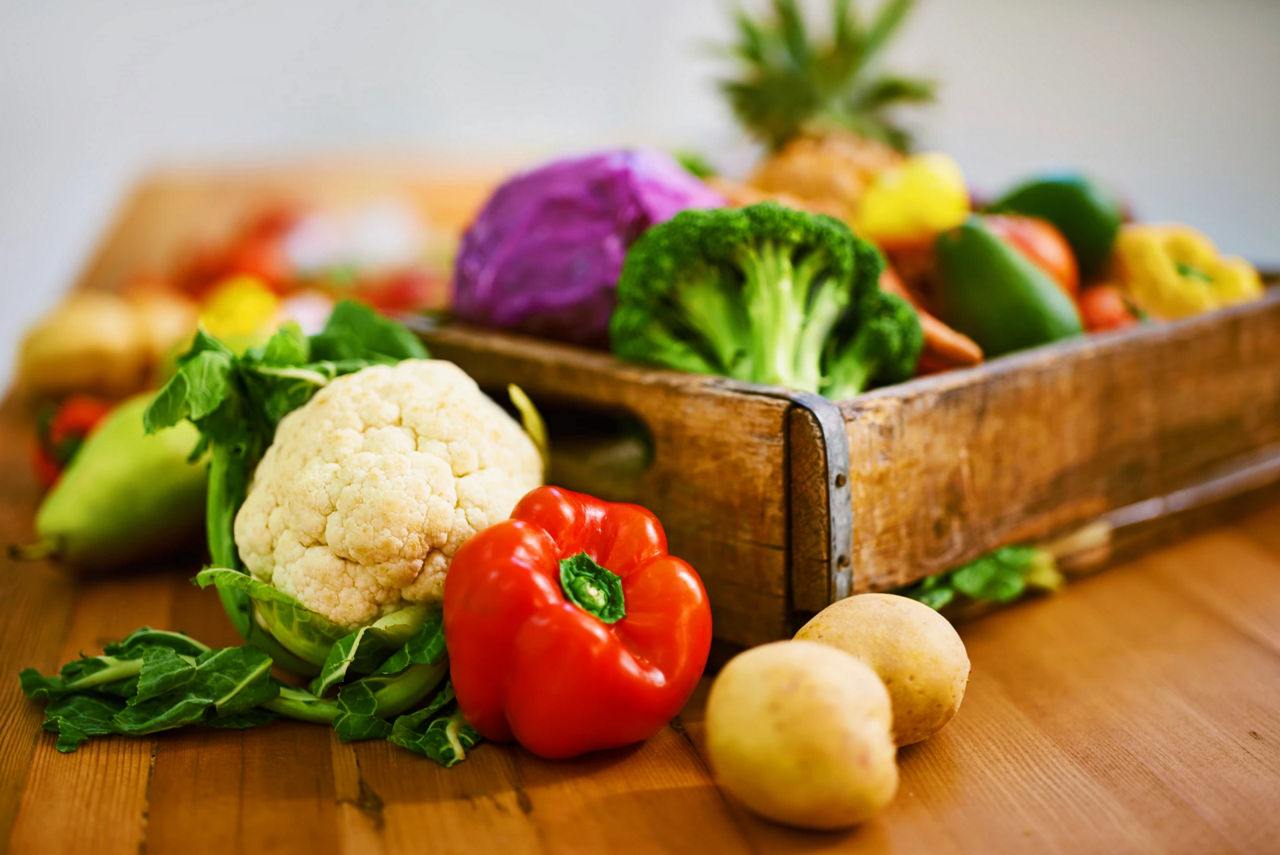
Discover which key nutrients are provided by different fruit and vegetables:
Vitamin C is important for normal immune protection. As well as helping to fight infections and protect cells2, vitamin C is needed to make collagen, the main structural protein of your baby’s body.
Sources include2:
- Broccoli
- Citrus fruits
- Tomatoes
- Red, green and yellow peppers
- Blackcurrants
Potassium helps to maintain blood pressure and can be found in3:
- Avocados
- Bananas
- Dried apricots
- Dark leafy greens
- Coconut water
Calcium contributes to your baby’s developing bones and teeth. Vegetable sources of calcium include3:
- Dark leafy veg, such as broccoli, kale, watercress
- Green French beans
- Brussels sprouts
Fibre aids digestion and prevents constipation4. A variety of fruit and vegetables provide fibre, with some being especially good sources, including4:
- Peas
- Sweet potatoes
- Turnips
- Legumes
Folic acid, is a B vitamin that occurs naturally in certain vegetables and other foods and helps to protect against neural tube defects5. It would be difficult to get this through food sources of folate alone, so a folic acid supplement is advised5.
Folate-rich foods can help to increase your intake even further and include6:
- Broccoli
- Brussels sprouts
- Spinach
- Asparagus
- Peas
You’re probably well aware of the 5-a-day guideline1. This is based on the fact that a minimum daily intake of 400g of fruit and vegetables help to lower the risk of serious health problems such as heart disease, stroke, diabetes and obesity1.
Eating at least five portions of fruit and vegetables per day as part of a healthy pregnancy diet will provide many of the nutrients needed to support your own health and your baby’s development7.
Discover healthy, tasty recipes to eat during your pregnancy by chef Lorraine Pascale and our team of nutritionists.
Fresh, frozen, dried and tinned varieties of fruit all count towards your 5-a-day7. A glass of fruit juice counts as 1 of your 5-a-day, but due to its high sugar content, it can only be counted once towards your daily intake7.
But what is one portion? One serving of fruit or vegetables equates to8:
- 30g of currants, dates or figs
- Half a fresh grapefruit
- Two broccoli spears
- Four heaped teaspoons of cooked kale
- One medium pear
- Three apricots
What about dried fruits?
Dried fruit contains about the same amount of nutrients as fresh fruit. The process of drying the fruit removes water from the fruit, shrinking it down to a smaller size. That’s why just 30g dried fruit, such as currants, dates, or sultanas, counts as 1 of your 5 A Day. Try dried apricots and prunes for an extra dose of iron9.
Pregnancy superfoods
Certain foods contain more nutrients or beneficial components than others, leading them to be dubbed ‘superfoods’. Although not quite as super as some people believe, these foods are a good way to boost your intake of vitamins, minerals and antioxidants. Learn more about a healthy pregnancy diet to support your baby’s development and future health.
Most people have heard of the term ‘superfood’, but in fact it has no official definition. The EU has banned its use on packaging unless it’s backed by research as the term can be misleading to consumers10. The concern is that people might think they can continue eating unhealthy foods and undo the damage by eating ‘superfoods’10.
However, foods that are referred to as ‘superfoods’ often have a higher content of nutrients per gram than other foods. For example, 20g of blueberries provides more of certain nutrients than 20g of strawberries11. Eating a variety of these nutrient-dense foods during pregnancy is a good way of getting all the vitamins and minerals your baby needs for healthy development11.
Top superfoods for pregnancy:
- Spinach
- Watercress
- Kale
- Broccoli
- Bok choy
- Seaweed – limit your intake to one portion per week to avoid getting too much iodine12
Dark leafy vegetables contain a variety of nutrients that support your baby’s development along with a healthy serving of fibre. Spinach is particularly rich in iron and folate13, while broccoli is a good source of calcium and vitamin D5.
- Blackberries
- Blueberries
- Raspberries
- Cranberries
- With a higher concentration of nutrients and energy content for their size than most fruits, berries are one of the best fruits to eat during pregnancy to increase your nutrient intake7.
- Salmon
- Mackerel
- Sardines
- Fresh tuna (tinned tuna isn’t classified as an oily fish)
- A lean protein, oily fish is also a good source of vitamin D, vitamin A, selenium and omega-314, a fatty acid that helps support your baby’s developing brain15. Take care not to eat more than two portions of oily fish a week due to the risk of pollutants. Read more about eating fish during pregnancy.
- If you are vegetarian, you can boost your omega-3 intake by including walnuts, rapeseed and linseed oil in your pregnancy diet15.
- Bananas
- Potatoes
- Sweet potatoes
- Wholegrain cereals
- Carbohydrates are affordable, versatile and provide the energy that fuels your baby’s development. Bananas are a good source of energy as well as potassium and vitamin B6, which has been shown to help relieve nausea16.
- Potatoes and sweet potatoes contain various nutrients. Sweet potatoes are a good source of vitamin A and keep blood sugar levels more stable due to their slow-release properties17. White potatoes supply potassium, magnesium, copper, manganese, iron, vitamin C and certain B-vitamins17.
- Wholegrain cereals are a fibre-rich source of energy. Look for fortified varieties that provide folic acid to support your baby’s neural tube development, and iron for its benefits to your baby’s brain6.
Great ways to boost your fruit and vegetable intake:
- Buy frozen fruit and veg – it’s often cheaper than fresh varieties, doesn’t go off, and the nutrient content is well preserved.
- Try a broccoli and bok choy stir-fry with chicken or pork. Find out more about eating meat during pregnancy.
- Snack on vegetables, such as carrot or celery sticks with hummus.
- Add extra vegetables to home cooked soups and sauces.
- Use fruit and vegetables to make nutritious smoothies.
- As well as adding variety and colour to your diet, fruit and vegetables are packed with powerful nutrients that support you and your baby during pregnancy.
- Studies have found that there are various connections between a mother’s fruit and vegetable intake and their baby’s health.
- A well-balanced diet that meets the recommended calorie and nutrient intake is more likely to result in a healthy birth weight18, which can reduce your baby’s risk of disease and other health issues19. The antioxidants found in many fruits and vegetables can also help protect your baby's cells from damage caused by harmful compounds present in the environment.
- Vegetables, in particular, have been shown to have a beneficial effect on birth weight18, so include plenty in your diet to support your baby’s growth and development.
- A good intake of fruit and vegetables has also been found to help prevent your baby from developing allergies and allergic symptoms later in life3.
- A higher intake of leafy vegetables and apples in pregnancy has been linked to less wheeziness in infancy20, and vitamin E, which can be found in spinach, broccoli and butternut squash, may also reduce the risk of wheezing21.
- In addition, some research suggests that green and yellow vegetables, citrus fruit, and those containing orange-hued beta-carotene, such as sweet potatoes, carrots and oranges may reduce the risk of childhood eczema21.
Related Topics
Read next

Need some help?
You can get quick answers to common questions in our FAQs.
Alternatively, if you need help with general pregnancy or baby advice, or maybe on using or ordering our products - our expert team are always on hand to talk about feeding your baby.
- NHS. Why 5 a day? [Online]. 2017. Available at: www.nhs.uk/Livewell/5ADAY/Pages/Why5ADAY.aspx [Accessed February 2020]
- NHS. Vitamin C [Online]. 2017. Available at: https://www.nhs.uk/conditions/vitamins-and-minerals/vitamin-c/ [Accessed February 2020]
- NHS. Vitamins and minerals [Online]. 2017. Available at: www.nhs.uk/conditions/vitamins-and-minerals/others/ [Accessed February 2020]
- NHS. Why is fibre important? [Online]. 2018. Available at: www.nhs.uk/chq/Pages/1141.aspx?CategoryID=51&SubCategoryID=167 [Accessed February 2020]
- NHS. Vitamins, supplements and nutrition in pregnancy [Online]. 2020. Available at: www.nhs.uk/conditions/pregnancy-and-baby/vitamins-minerals-supplements-pregnant/ [Accessed February 2020]
- NHS. B Vitamins and folic acid [Online]. 2017. Available at: www.nhs.uk/conditions/vitamins-and-minerals/vitamin-b/ [Accessed February 2020]
- NHS. 5-a-day: what counts? [Online]. 2018. Available at: www.nhs.uk/live-well/eat-well/5-a-day-what-counts/ [Accessed February 2020]
- NHS. 5-a-day portion sizes [Online]. 2018. Available at: www.nhs.uk/live-well/eat-well/5-a-day-portion-sizes/ [Accessed February 2020]
- NHS. Iron [Online]. 2017. Available at: https://www.nhs.uk/conditions/vitamins-and-minerals/iron/ [Accessed March 2020]
- NHS. Miracle foods: myths and the media [Online]. 2011. Available at: www.nhs.uk/news/2011/02February/Documents/BTH_Miracle_%20foods_report.pdf [Accessed February 2020]
- Manganaris GA et al. Berry antioxidants: small fruits providing large benefits. J Sci Food Agric 2014;3094(5):825-33
- NHS. Iodine [Online]. 2017. Available at: www.nhs.uk/conditions/vitamins-and-minerals/iodine/ [Accessed February 2020]
- NHS. Iron [Online]. 2017. Available at: www.nhs.uk/conditions/vitamins-and-minerals/iron/ [Accessed February 2020]
- NHS. Should pregnant and breastfeeding women avoid some types of fish? [Online]. 2018. Available at: www.nhs.uk/chq/Pages/should-pregnant-and-breastfeeding-women-avoid-some-types-of-fish.aspx?CategoryID=54&#close [Accessed February 2020]
- British Dietetic Association. Food Fact Sheet: Diet, behaviour and learning in children [Online]. 2017. Available at: www.bda.uk.com/resource/diet-behaviour-and-learning-children.html [Accessed February 2020]
- Jewell D, Young G. Interventions for nausea and vomiting in early pregnancy. Cochrane Database Syst. Rev. 2003;(4)
- NHS. Starchy foods and carbohydrates [Online]. 2017. Available at: www.nhs.uk/live-well/eat-well/starchy-foods-and-carbohydrates/ [Accessed February 2020]
- Ramón R et al. Vegetable but not fruit intake during pregnancy is associated with newborn anthropometric measures. J Nutr 2009;139(3):561- 567.
- Stephenson T, Symonds M. Maternal nutrition as a determinant of birth weight. Arch Dis Child Fetal Neonatal Ed. 2002;86(1):F4–F6.
- Erkkola M et al. Risk of asthma and allergic outcomes in the offspring in relation to maternal food consumption during pregnancy: a Finnish birth cohort study. Paediatr Allergy Immunol. 2012;23(2):186-194.
- Miyake Y et al. Consumption of vegetables, fruit, and antioxidants during pregnancy and wheeze and eczema in infants. Allergy 2010;65(6):758-765.
Last reviewed: 28th July 2020

